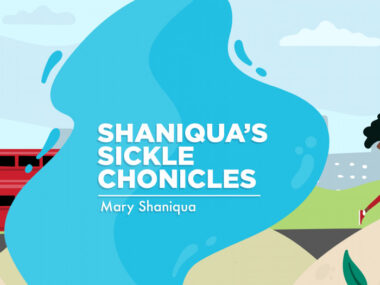How sickle cell disease can lead to insecurity in relationships
Communication is essential when dealing with health setbacks and limitations
Written by |

Living with sickle cell disease comes with challenges, such as pain crises that can set a patient back days, weeks, or even months. The mental and physical toll can be immense. Because February is often associated with love, I’ve been reflecting on how facing setbacks with sickle cell can affect romantic relationships.
At the start of a new relationship, those of us with the condition must decide if and when to tell our romantic interest that we have sickle cell. I’ve written about how I disclose my condition right away to a potential partner so we can decide whether to keep dating before deep feelings develop.
If my date and I overcome that hurdle, we’ll typically spend more time together, learn more about each other, and eventually decide whether to make it official. It’s fantastic when I find a person who accepts me and looks beyond my condition.
Overcoming insecurity in relationships
As I reflect on my past relationships, however, I wonder if I truly accepted that I had sickle cell. I’d push through the pain because I didn’t want to seem weak or too dependent. Also, there’s the trope of toxic masculinity: How could I be a strong partner when I couldn’t even carry my own body during a crisis?
Feeling weak was one of my biggest insecurities. I felt I always had to keep up with my partner, go out in the cold, socialize, and travel, even when these options weren’t the best for me. Spontaneity was difficult, because if sickle cell reared its ugly head, I couldn’t escape the feeling of letting the other person down.
For me, part of growing in a relationship means accepting that a partner loves me for me, regardless of my health issues and limitations. Open communication about how the disease affects me brings us closer. It also helps us avoid misunderstandings and prevent resentment from building up.
Feeling insecure, however, makes me feel like a burden. During a crisis, I sometimes need help, whether it’s with such simple tasks as cooking or even resting. It’s hard not to feel guilty for needing care, especially when it takes a physical and emotional toll on my partner.
Long-term relationships require trust and vulnerability. These two factors often strengthen a bond by breaking down the wall of fear surrounding a chronic condition. When this wall breaks, love and empathy have space to grow. We all have low moments, with or without sickle cell. Offering each other love, care, and support is essential. Everybody needs somebody to lean on without feeling like a burden.
Despite all the love and affection I’ve been shown, I’ve still had to grapple with insecurity in my relationships. However, knowing that love is possible for people with long-term conditions gives me hope. I owe it to myself to be the best version of myself that I can be, and tackling my insecurities is part of that.
Note: Sickle Cell Disease News is strictly a news and information website about the disease. It does not provide medical advice, diagnosis, or treatment. This content is not intended to be a substitute for professional medical advice, diagnosis, or treatment. Always seek the advice of your physician or other qualified health provider with any questions you may have regarding a medical condition. Never disregard professional medical advice or delay in seeking it because of something you have read on this website. The opinions expressed in this column are not those of Sickle Cell Disease News or its parent company, Bionews, and are intended to spark discussion about issues pertaining to sickle cell disease.



Nwekwi Rita
I really love this post. It's just addressing me directly.